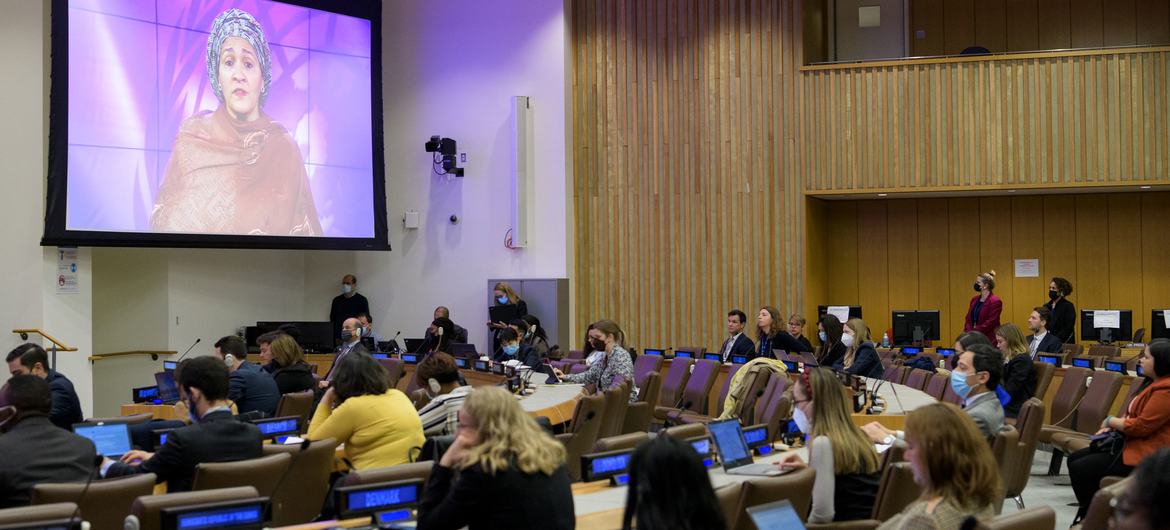By Haruna Gimba
Despite global promises and progress, some 263 million children and young people are out of school, indicating that achieving quality education for all by 2030 is “seriously off track,” United Nations Deputy Secretary-General Amina Mohammed warned.
The issue is under the microscope at the latest session of the Commission on Population and Development (CPD), which took place at UN Headquarters in New York.
Delivering opening remarks, Ms. Mohammed began by highlighting the situation of women and girls in Afghanistan, who have been banned from high school and university, calling this “one of the gravest educational challenges of our time.”
She underlined how education is a crucial long-term investment for a sustainable future, for people and the planet.
A ‘triple crisis’
However, she said countries are facing “a triple crisis in education – one of equity and inclusion, quality and relevance, to equip current and future generations with the skills they need to thrive in a fast-changing world.”
The millions of children worldwide who are not attending school, represent just one challenge for the international community.
Equally concerning is the fact that many students simply are not learning, she said, as nearly 70 per cent of children in poorer countries cannot understand a basic text by age 10, mainly due to chronic factors such as poverty and malnutrition.
Transform educational systems
“Ultimately, we need to reimagine and transform our educational systems if they are to be fit for purpose,” Ms. Mohamed said. “We need to learn how to learn throughout our lives, and learn to live in peace with one another and with nature.”
She stressed that success will also require examining the link between education, technology and demographic trends, and acting upon the opportunities and challenges they bring.
She called for initiatives to get all learners “climate-ready” and connected to the internet and the world of digital innovation, which is especially important for girls and women from the Global South, who are the most excluded.
‘Demographic diversity’
The international community will also need to consider how to benefit from the world’s “demographic diversity”, with some countries having a median age of around 50, and others, just 15. This also applies to older persons, who will comprise the majority of the global population by 2050, and to persons with disabilities.
Ms. Mohammed highlighted the need to ensure inclusive education for women and girls, and to encourage them to pursue studies in science, technology, engineering and mathematics, the so-called STEM fields.




